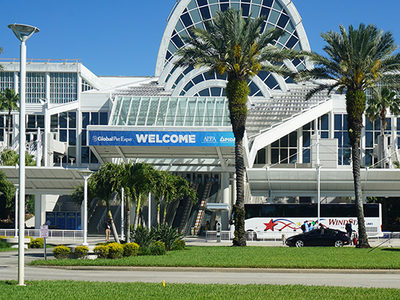WASHINGTON — Flexible plastic packaging (FPP) is being diverted from landfill waste streams thanks to a pilot program conducted through TotalRecycle and J.P. Mascaro and Sons’ Material Recovery Facility (MRF) in Birdsboro, Penn.
A research report by the Materials Recovery for the Future (MRFF) consortium noted optical sorting equipment can be effectively used to reprocess flexible packages into a commodity bale called rFlex to be reused for a variety of products, such as roofing materials, pallets and railroad ties. Those are just a few of the high-volume opportunities for rFlex materials pinpointed by MRFF’s research.
“Approximately 12 billion pounds of FPP are consumed annually in the United States, and it’s one of the fastest growing consumer packaging formats, but collecting, sorting, recycling and reintroducing this material back into the marketplace as new products requires a comprehensive approach to ensure that these materials don’t end up in landfills,” said Brent Heist, co-chair of MRFF’s Steering committee and section head of packaging sustainability for P&G.
The Nestlé Purina PetCare Company, which is focused on converting single-use and non-recyclable packaging to more environmentally friendly options, is a founding member of MRFF. Purina is currently working toward the goal of making 100% of its packaging recyclable or reusable by 2025.
“As a society, we have a responsibility to minimize our waste and find ways to repurpose material to be used again, where possible, in next generation products and packages,” said Diane Herndon, senior manager of sustainability at Nestlé Purina PetCare Company. “At Nestlé Purina, we are working hard to transform our packages to be more easily recycled or reused. It is just as important to upgrade the recycling infrastructure in the United States so that flexible plastics can be collected in curbside recycling, sorted and baled, and then reused.”
The pilot program by TotalRecycle and MRF utilizes FPP sortation equipment with five goals in mind. These include:
- Reducing the amount of FPP going into fiber products
- Minimizing paper in the new rFlex product bale
- Reducing fiber quality control staff by 25% and reallocate those jobs to other MRF functions
- Integrating the FPP recovery system into TotalRecycle’s existing MRF control system
- Capturing at least 90% of FPP, a figure determined after years of research preceding the pilot program
According to the MRFF’s research, four of these five performance goals were met within one year of installing TotalRecycle sortation equipment at the MRF facility.
“The Material Recovery for the Future (MRFF) pilot took a big step toward making flexible plastic packaging recyclable by using new technology to keep this valuable material in a circular economy,” Herndon added. “Partnerships like MRFF combine the best capabilities of organizations up and down the packaging supply chain to make change happen. We are proud to have been a founding partner in this important work.”
Read the full report, “Flexible Packaging Recycling in Material Recovery Facilities Pilot,” prepared by Resource Recycling Systems (RRS).
“It’s critically important to find financially viable opportunities and markets for rFlex bales,” said Susan Graff, research director for MRFF and vice president of Resource RRS. “Our hope is that the pilot research serves as a valuable data set to help other MRFs and communities economically recycle FPP while making cleaner paper bales. By working together to update sorting equipment, municipalities and businesses can support better quality recycling and meet commitments to buy more recycled content products.”
Stay up to date on news about the pet food processing industry on our News page.




